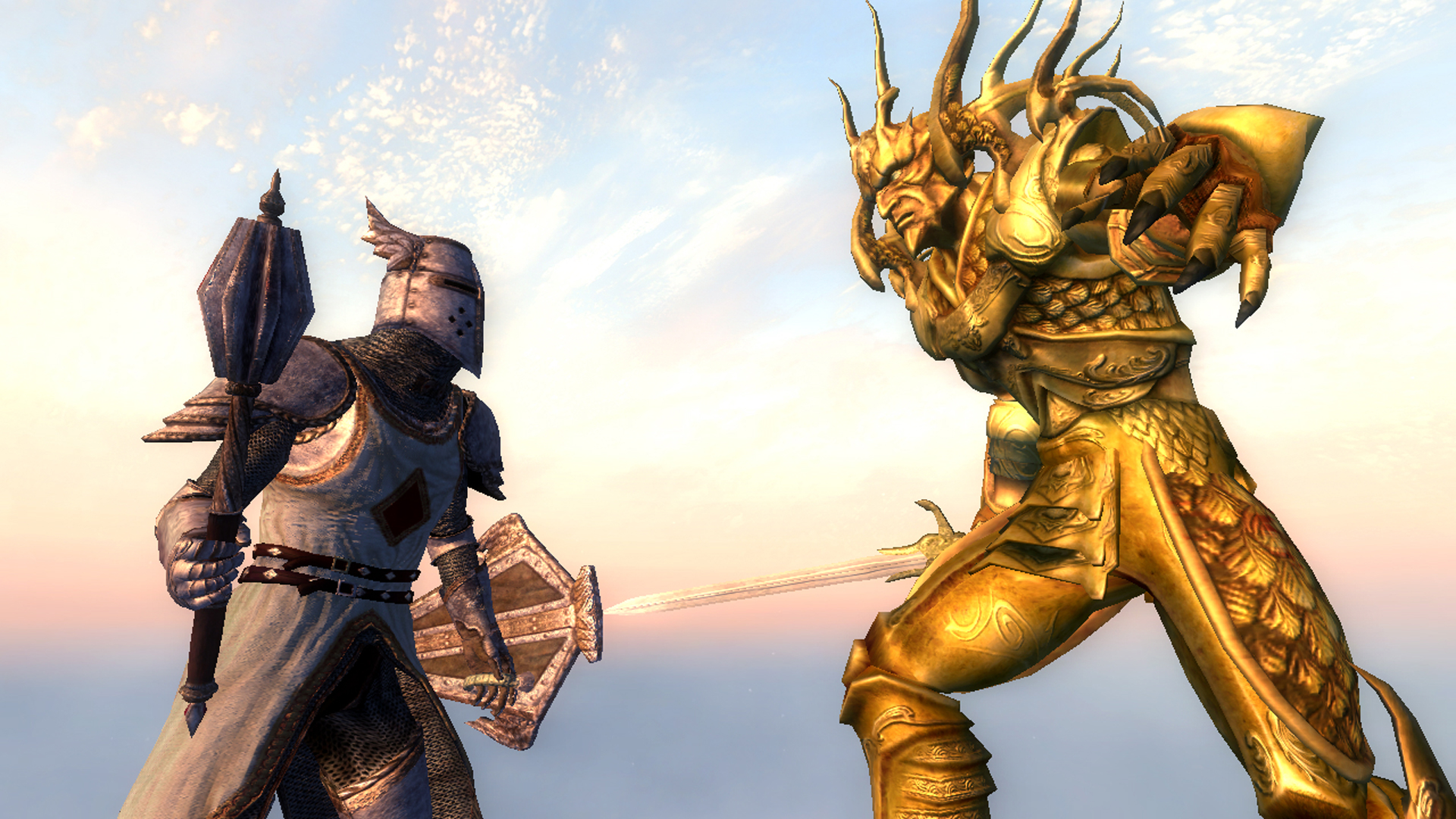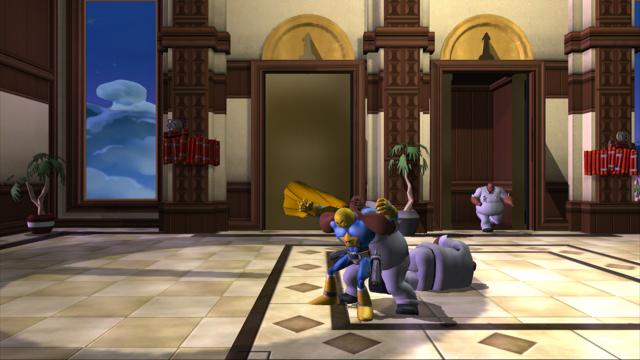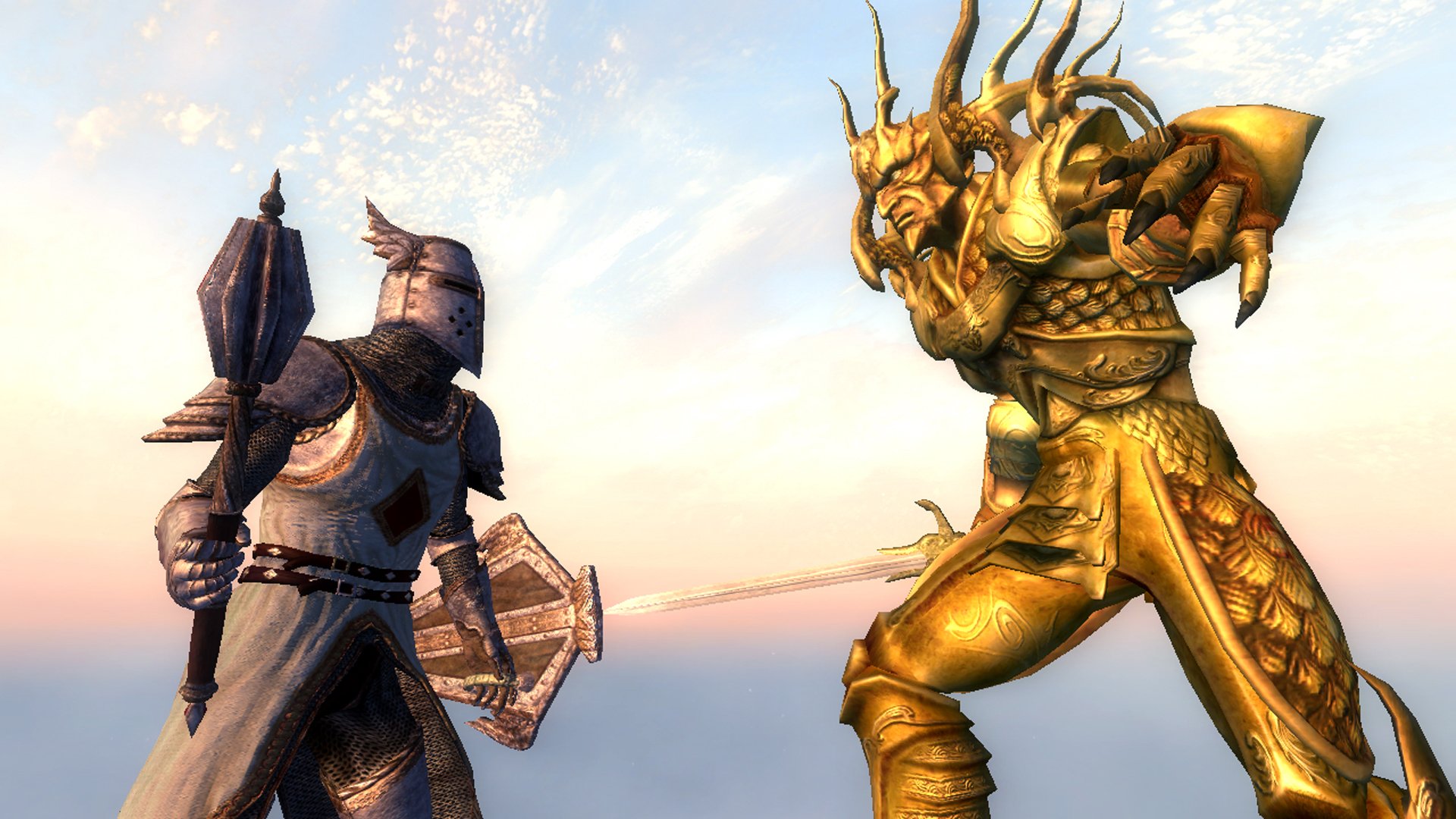## Oblivion’s Back, Baby, and Your Wallet’s Feeling It
Remember the days of getting lost in the sprawling landscapes of Cyrodiil, slaying Daedra with a rusty sword, and accidentally marrying a housecarl? Yeah, those days are back, and PC gamers are throwing money at the screen to relive the glory.

Quality-of-Life Upgrades

Oblivion Remastered doesn’t just offer a visual overhaul; it also introduces several quality-of-life improvements designed to enhance the player experience. Bethesda has meticulously addressed long-standing player criticisms, refining core gameplay mechanics for a smoother and more enjoyable journey through the world of Cyrodiil. One notable enhancement is the improved user interface (UI). The cluttered and often confusing menus of the original Oblivion have been streamlined, making navigation and character management significantly easier. This modernized UI allows players to quickly access essential information and adjust settings without interrupting the flow of gameplay.
Another significant improvement is the implementation of enemy scaling. In the original Oblivion, players often encountered difficulty spikes when transitioning between different areas or completing certain quests. This issue has been addressed in the remaster, with enemy levels now dynamically adjusting to the player’s progress, ensuring a more balanced and engaging challenge throughout the game. This refinement ensures that players remain challenged without feeling overwhelmed or unfairly disadvantaged.
Performance optimizations represent a crucial aspect of Oblivion Remastered. The original game, while beloved, suffered from performance issues, particularly on lower-end systems. The remaster addresses these concerns with numerous optimizations, resulting in smoother frame rates, reduced loading times, and improved overall stability. This enhancement allows players to fully immerse themselves in the world of Oblivion without encountering frustrating technical hiccups.

Gameplay Mechanics
Oblivion Remastered faithfully recreates the core gameplay elements that made the original game a classic. The character creation system remains robust, allowing players to customize their avatars’ attributes, skills, and appearance. The skill-based progression system, a hallmark of the Elder Scrolls series, has been retained, encouraging players to develop their characters in diverse ways, specializing in combat, magic, or crafting, based on their desired playstyle.
Combat in Oblivion Remastered retains its blend of melee and magic, offering players a variety of options for engaging enemies. The combat system has been refined, with smoother animations and improved responsiveness, enhancing the overall fluidity of combat encounters. Spells now function with greater accuracy and visual impact, adding a layer of tactical depth to magical combat.
The exploration and discovery aspects that defined Oblivion remain central to the remaster. The vast and detailed world of Cyrodiil, with its sprawling cities, treacherous dungeons, and hidden secrets, invites players to embark on countless adventures. The iconic Oblivion Gates, portals to the demonic realm of Oblivion, have been faithfully recreated, providing a challenging and rewarding gameplay experience.

The Enduring Appeal of Oblivion
Despite its age, Oblivion continues to resonate with players, a testament to its timeless appeal. The game’s captivating world-building, rich lore, and engaging characters have captivated generations of gamers. The freedom to explore Cyrodiil at your own pace, forge your own destiny, and shape the world around you remains a core attraction for players seeking an immersive and rewarding RPG experience.
The remaster builds upon these strengths, enhancing the visual fidelity, refining the gameplay mechanics, and addressing long-standing player concerns. These improvements serve to revitalize the classic experience, attracting both returning fans and newcomers alike.
Oblivion’s enduring legacy lies in its ability to transport players to a truly magical world. The game’s sense of wonder, adventure, and possibility continues to inspire and entertain players, solidifying its place as a cornerstone of the RPG genre.

The Future of the Elder Scrolls: Oblivion Remastered’s Implications
Oblivion Remastered’s success highlights the growing popularity of remastering classic games. Players are showing a clear appetite for revisiting beloved titles with updated visuals, gameplay enhancements, and modern conveniences. This trend has significant implications for the gaming landscape, offering both opportunities and challenges.

Remastering Trends in Gaming
The demand for remasters stems from several factors. First, classic games often hold a special place in the hearts of gamers, representing formative experiences and nostalgic memories. Remasters provide a way to revisit these cherished titles with improved fidelity and functionality.
Second, remasters offer a more accessible entry point for newer generations of gamers who may not have had the opportunity to experience the original games. By modernizing the visuals and gameplay, remasters bridge the generational gap, introducing classic titles to a wider audience.
Finally, remasters can be a cost-effective way for developers to release new content, leveraging existing assets and IP to create updated experiences without the significant investment required for developing entirely new games.
Expectations for Future Releases
Oblivion Remastered’s success has undoubtedly fueled speculation about the potential for remasters of other Elder Scrolls titles. Games such as Morrowind and Daggerfall, both highly acclaimed entries in the series, have fervent fan bases eager to see them brought to modern platforms with updated visuals and gameplay enhancements.
Beyond the Elder Scrolls franchise, the success of Oblivion Remastered suggests that other classic RPGs could also benefit from the remaster treatment. Titles such as Fallout 2, Baldur’s Gate, and Planescape: Torment, with their rich storylines, complex characters, and timeless appeal, could find renewed relevance in a modern gaming landscape.
The Legacy of Oblivion
Oblivion Remastered serves as a powerful reminder of the enduring legacy of the original game. The remaster not only revitalizes a classic experience but also celebrates the game’s lasting impact on the RPG genre. Oblivion’s influence can be seen in countless other games, from its open-world design to its character creation system and its focus on player choice and consequence.
As gamers continue to explore the world of Oblivion Remastered, it’s clear that the game’s legacy will endure for generations to come. The remaster stands as a testament to the power of classic games to captivate and inspire, even as the gaming landscape evolves.
Conclusion
So, there you have it. Bethesda’s Oblivion Remastered has stormed onto the scene, instantly claiming the top spot on Steam’s global bestsellers list. With a price tag of $50, PC gamers have clearly demonstrated their eagerness to revisit the sprawling world of Cyrodiil, proving that nostalgia and quality can still command a premium in the gaming market. It seems the article’s argument holds water: Oblivion isn’t just a beloved classic; it’s a testament to enduring design and storytelling that continues to resonate with players, even after all these years. The success of Oblivion Remastered goes beyond simple nostalgia. It signals a powerful shift in the industry, highlighting the potential of remastering beloved titles and offering them to a new generation of players. This begs the question: what other classics are ripe for a similar revival? Will we see a renewed interest in older RPGs, adventure games, or even strategy titles? The answer, undoubtedly, lies in the hands of developers willing to take the plunge and reimagine the past for the present. One thing’s for sure, the success of Oblivion Remastered is a compelling argument for revisiting the games that shaped our childhoods. This isn’t just a nostalgic trip; it’s a reminder that true quality transcends time. Oblivion Remastered isn’t just a game; it’s a testament to the enduring power of storytelling, and a beacon of hope for the future of gaming – a future where the classics aren’t left behind, but reborn for a new generation to experience.
